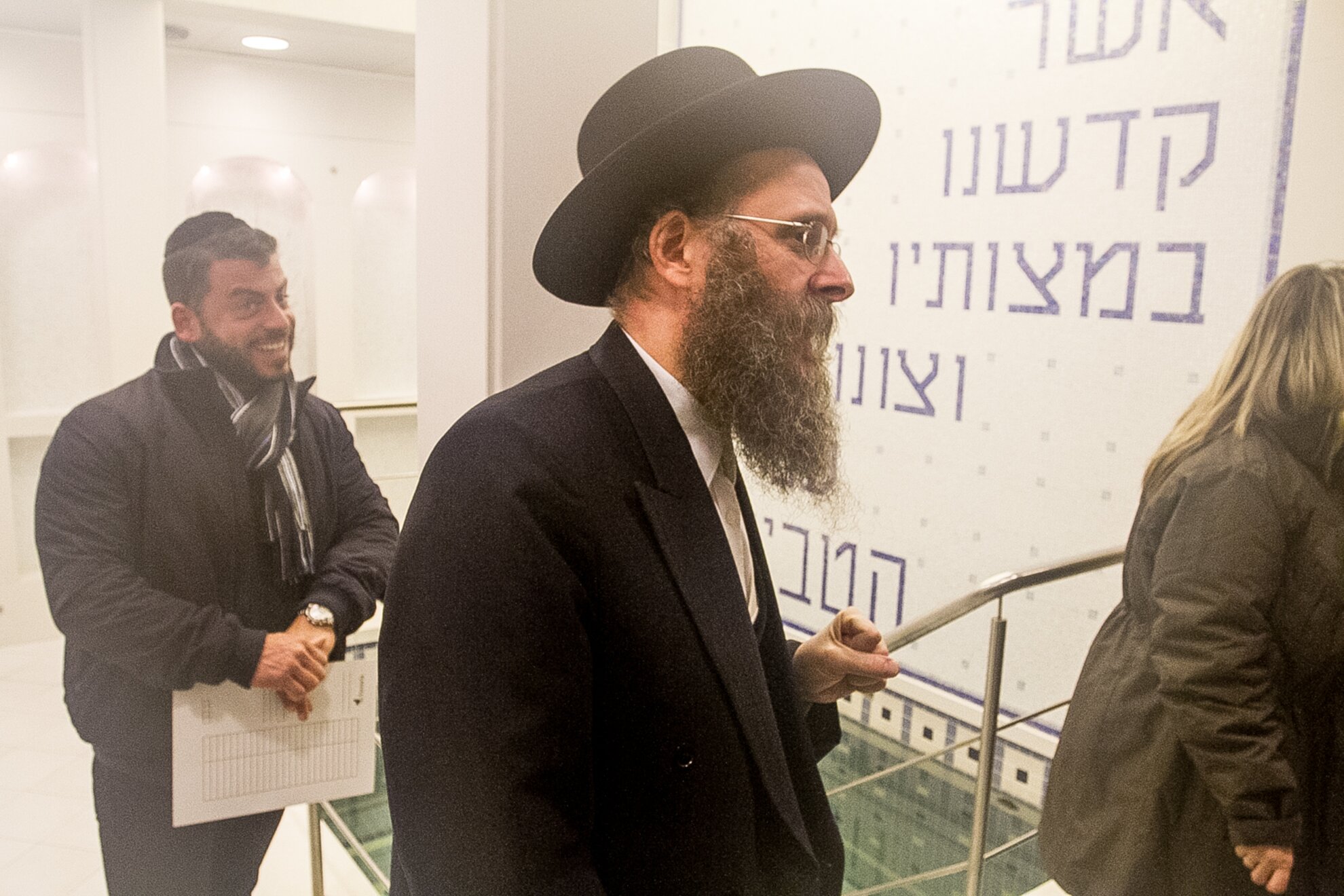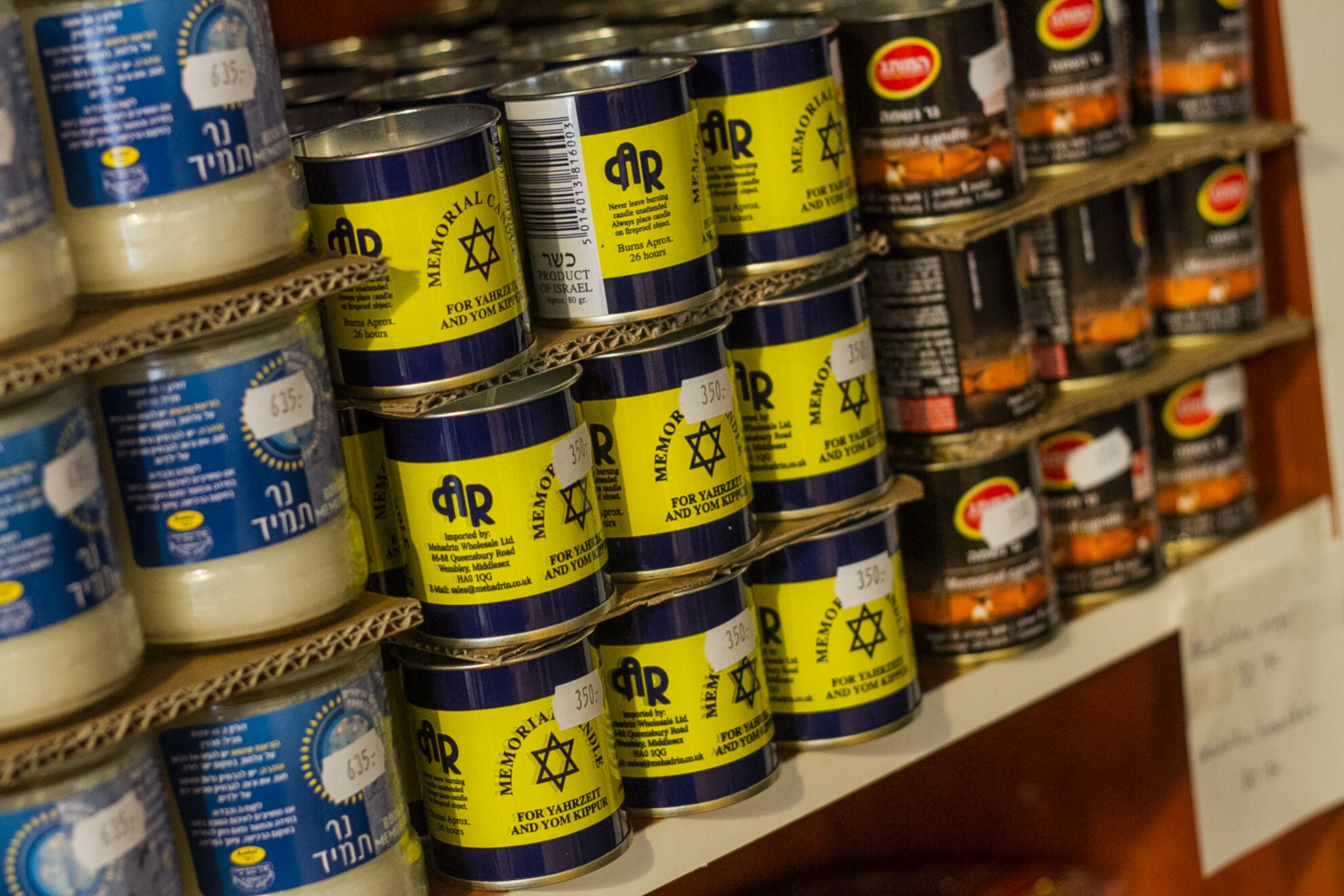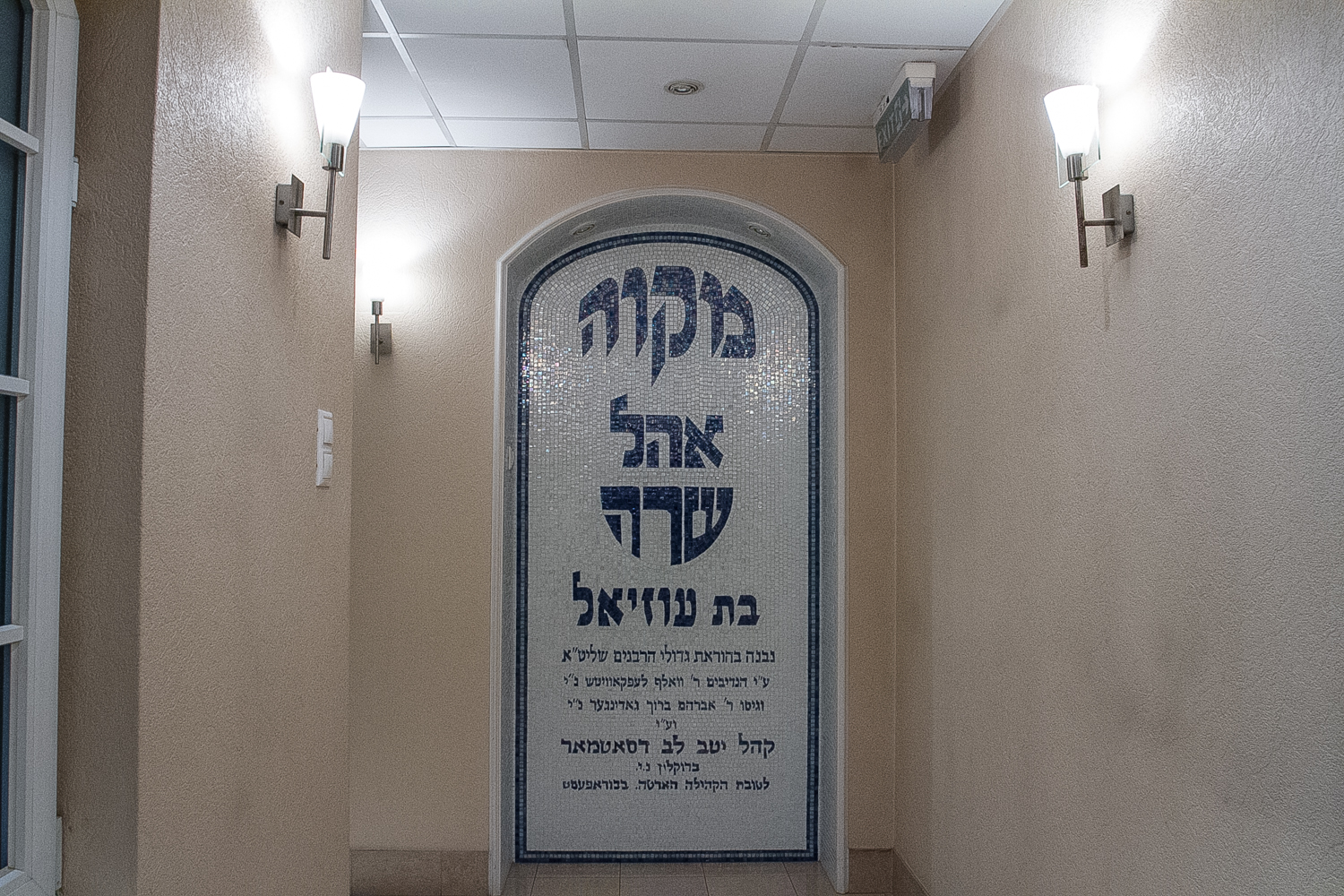There are many misconceptions regarding the Jewish religion and all things kosher in the public mind. Even if you are a kind of expert on the topic, this tour by the Union of Jewish Communities in Hungary (EMIH), together with Eszter Fűszeres, is still likely to reveal new information. We visited the flat of one of the heads of the Budapest rabbinate as well as the mikveh in Kazinczy Street, we dined at the Carmel restaurant and popped by the Oblath kosher shop.
If you've been on a few sightseeingtours in Budapest you might feel that there's not much else a tour could show you, but the "kosher walk" lead by Eszter Fűszeres and the EMIH, however, turned out fantastic - with no exaggeration. We received so much new information and killed so many false stereotypes and misconceptions - all the while in an entertaining manner - that this tour would surely put most book and documentaries to shame. Although this program focuses primarily on gastronomy, we met members of the Jewish community who added much about the entire Jewish culture. This is one of the strengths of the program: information is offered by devoted koshers, not academics.

Our first stop was a flat on Wesselényi Street, home to Rabbi Báruch Oberlander (head of the Budapest Rabbinate of the Cháred Communities and Rabbi of the Vasvári Street Synagogue). The rabbi and his wife showed us their kitchen, which was divided into two parts to comply with the strict regulations regarding cleanliness and rituals. One part is for cooking food with milk, the other for cooking with meat. Each section had its own sink, stove, pots and service set. Koshers believe that the taste of milk and meat sticks to the pots when dilated by heat, and these products have to be consumed separately. After consuming a meaty dish, you have to wait 6 hours to have anything milky, and 30 minutes after anything with milk to eat any kind of meat. Rabbi Oberlander's wife noted that their body and mind are so accustomed to this peculiar separation that she does not even crave (for example) chocolate after a meaty lunch - only 6 hours later.
There is no yearning, there are no exceptions from the rule. Even vegetables are checked in strong light: koshers must not eat insects or larvae either that might have stuck to vegetables and fruits and are hard to spot. In practice, they dispose of the first 3 or 4 layers of cabbage leaves, until they reach the clean and fresh ones - but they still have to inspect them closely. They check flour to eliminate any insect that might be there, and remove the drop of blood from the egg, which is also forbidden to eat. At one of the later stops, the kosher shop, they showed us the white eggs known from cartoons, that contain less blood on average. We were also told that the drinking water in Brooklyn, New York is for some reason more polluted and hence has microscopic organizations living in it - so the majority of Brooklyn Jews use a water purifier at home. Don't be surprised if you find flour in the fridge of a kosher home during summer - it is a protection against insects. Fun fact: during Pesach, flour is only consumed in the form of matzah.

They also explained that the Saturday rest day also extends to cooking, so women must be ready with the dinner for the next day by Friday sundown. "Lighting a fire" and work in the kitchen is also prohibited during Sabbath. This explains the popularity of cholent and cabbage dishes - these are relatively easy to keep warm until the following day. There were times when Jewish women took the next day's dinner to the baker on Friday, so that the baker could return the food hot on Saturday. This was because, for those following strict Jewish rules, carrying anything in public spaces is also forbidden on the Sabbath.

After the hospitality and the stories, we headed on towards an even more exciting location. There is a mikveh (a bath for ritual immersion) still in use near Szimpla kert. This beautiful bath is usually filled with living water (i.e. rainwater or water from wells) and was built for the purification of ladies. After the end of their menstrual cycles, Jewish women are required to visit the mikveh. This rather tasteful little bath that we visited could easily compete with a hotel wellness - and in addition to the ladies' bath, the building also houses a tub for pots. Pots have to be immersed in living water once a year and also directly after they are purchased. This is an important rule: in New York, there are kitchen utensil stores with a separate mikveh to spare Jewish costumers another trip. Rivers and lakes are also bodies of living water, so if there is no mikveh available, you can also visit the riverbank nearby. Visiting this ritual bath was an exceptional opportunity: we would not be allowed to enter the place apart from during this walk.

We ate authentic cholent for dinner at Carmel, where we were told about the processing of kosher meat, and the types of meat orthodox Jews are allowed to eat: any animal which chews the cud and has a cloven hoof; and most winged creatures. They can also eat fish which have both fins and scales, these are considered “pareve” (neutral) products that can be eaten in a ragout with cream or before a meat dish (without cream). When slaughtering the animal, the shochet plays an important role, since the animal suffers less thanks to its sharp blade. Covering the meat in salt is also an important stage - this is when the meat is purged of blood.

After our delicious cholent, all that was left was the kosher delicatessen, where we were told about the signs and seals that certify kosher origins. We would never have imagined that there is a kosher gummy bear brand, that Häagen-Dazs ice creams are all kosher, and that kosher meat is at least 30% more expensive due to the increased production costs.
Before this walk, we could not imagine how the modern 21st century lifestyle could fit alongside keeping to the strict regulations of the Torah. But we learnt so much, and often in such an entertaining way, that we have to say that this was the most interesting sightseeing tour we've done in a long time!

From January, the walks will start at 11am, every second Sunday of the month. Check it out if you're interested in Jewish culture or if you simply wish to know more about this colourful and exciting world.
Registration: koserseta@zsido.com




